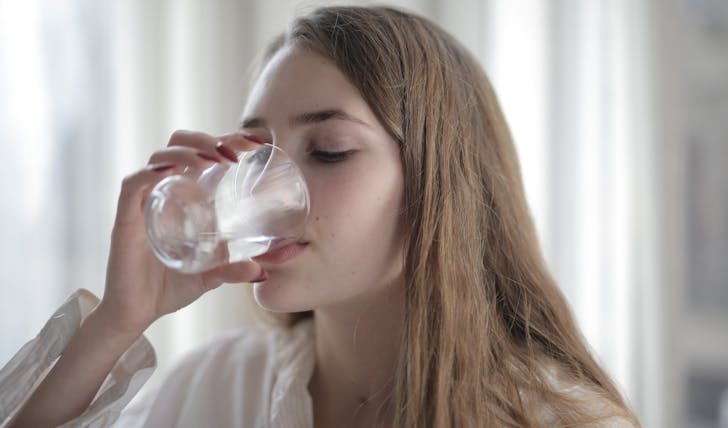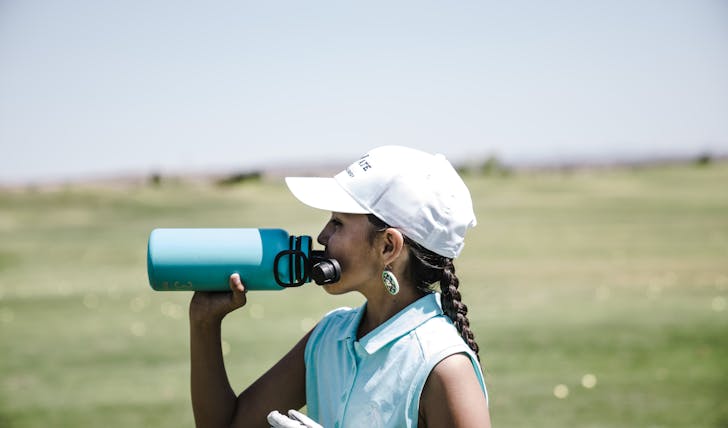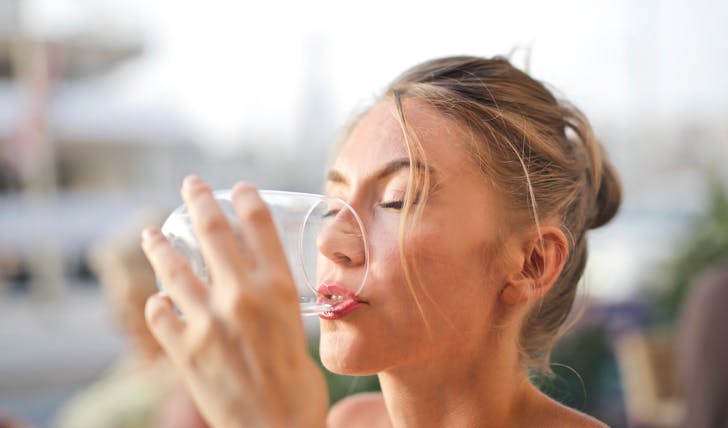
How Frequently Should You Drink Water While Taking Water Pills?

When you are on a treatment that includes water pills (diuretics), one of the most common questions is: How much water should I drink while taking water pills? This query is not just about quenching your thirst. It is crucial for maintaining the delicate balance of hydration your body needs to function optimally. As these medications increase urine production, staying adequately hydrated is key to avoiding the potential pitfalls of dehydration.
Water pills are a type of medication primarily prescribed to help the body eliminate excess fluid. They are often used in the treatment of conditions such as high blood pressure, heart failure, and certain types of swelling. By prompting your kidneys to expel more salt and water, these pills help to reduce the volume of fluid flowing through your blood vessels, which can help to lower blood pressure and reduce swelling.

Olly / Pexels / While taking water pills, you should hydrate on a daily basis. But you do not have to drink ‘extra’ water unless your healthcare provider prescribes it to you.
Dehydration can be a serious side effect of taking water pills. As these medications increase the production of urine, they also speed up the loss of water from the body. Without proper hydration, this increased urine output can lead to a drop in blood volume, causing symptoms like dizziness, weakness, dry mouth, and in severe cases, kidney damage. Hence, understanding the importance of hydration while on water pills is critical for your health.
How Much Water Should You Drink While Drinking Water?
So, how much water should I drink while taking water pills? The straightforward answer is: It varies. The amount of water you need while taking diuretics depends significantly on your individual health circumstances. For most people, the general recommendation for daily water intake is about eight 8-ounce glasses, which roughly equals about 2 liters, or half a gallon. This is a good starting point, but your specific needs might differ.

Jopwell / Pexels / Since water increases urination, it is pivotal to avoid dehydration while taking water pills.
It is vital to consult with your healthcare provider to determine your exact hydration needs while on water pills. Factors such as the type of diuretic, the dosage, your overall health, and your daily activity levels can all influence how much water you should drink.
While you might think that drinking more water would counteract the dehydrating effects of diuretics, it is essential not to overhydrate, which can dilute essential minerals in your blood and lead to other health issues.
The Timing Should Be Perfect
Besides the quantity, the timing of your water intake also plays a role. It is advisable to distribute your water consumption evenly throughout the day. Drinking too much water at once, especially near bedtime, can lead to sleep disturbances due to frequent trips to the bathroom. Space out your water intake and consider tapering down as you approach your sleeping hours to balance hydration with comfort.

Adrien / Pexels / Your exact daily water needs can vary based on your health condition. Hence, it is extremely important to confirm with your healthcare provider.
Why is it so important to stay properly hydrated while on water pills? Hydration affects virtually every aspect of health, from ensuring proper kidney function to maintaining blood pressure levels. Water helps to transport nutrients and oxygen to cells, regulate body temperature, and lubricate joints. Adequate hydration can also aid in detoxification processes. It is especially important when your body is adjusting to medication like diuretics.
So, how much water should I drink while taking water pills? The answer should come from your healthcare provider, tailored to your personal health profile and the specifics of your medication. Remember, while water pills can be incredibly effective for managing certain health conditions, they must be used carefully and responsibly, with adequate attention to hydration.
More in Health
-
`
How Life in Germany Brought an American Family Closer (But Made Them Homesick)
Family always came first. That is what made the move from Maryland to Germany both exciting and painful for this American...
July 22, 2025 -
`
Angélique Kidjo Becomes First Black African on Hollywood Walk of Fame
Angélique Kidjo just made history. On July 3, 2025, it was announced that Kidjo will be getting her own star on...
July 15, 2025 -
`
Why Smart Window Placement Is the Secret to Aesthetic Home Design
Windows shape how your home looks from the street, how light moves through your space, and how your rooms feel every...
July 8, 2025 -
`
Why Cannabis Use Doubles the Risk of Heart-Related Deaths
Doctors have warned about tobacco for decades, but marijuana is often seen as the safer choice. New research is poking holes...
July 1, 2025 -
`
The Top 5 Best Credit Cards For Family Disney Vacations
A Disney vacation in 2025 is not cheap. Park tickets, hotel stays, meals, and travel can add up fast. But the...
June 24, 2025 -
`
The Surprising Lives of 10 A-List Celebrities Before Fame
Fame changes everything, or so they say. But not everyone flips the switch once the cameras show up. Some stay grounded,...
June 17, 2025 -
`
Trump’s Surgeon General Pick Dr. Casey Means Praises ‘Illegal’ Psychedelic Therapy
Psychedelic therapy just landed at the center of the national health debate, thanks to Donald Trump’s latest pick for surgeon general....
June 3, 2025 -
`
5 U.S. Family Vacation Spots You Should Book ASAP
If you are looking for the best family vacation spots in 2025, skip the guesswork. These five places deliver the fun,...
May 27, 2025 -
`
These Stars are ‘Banned’ From the 2025 Met Gala
The Met Gala might be fashion’s Super Bowl, but not every celebrity wants to play. While millions obsess over who wore...
May 20, 2025















You must be logged in to post a comment Login